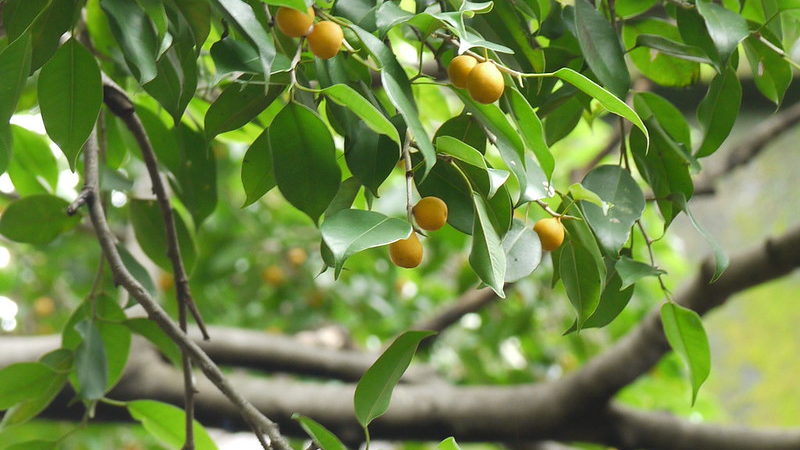How the unsung urban “wilderness” turned a bleak period wondrous
Outside my house, everything looked peachy. There was the cerulean California sky, the warm desert air of the Santa Ana winds, the gardeners with their blaring leaf blowers, the mutt next door barking at the postman, and the ruffle blooms of my white roses broadcasting their intense floral scent through my open window. But it wasn’t a normal morning in the City of Angels.
On my desk, lay the airplane ticket for Europe; next to it, my iPhone jammed with incoming dispatches from my mother.
“It’s chaos here!!!!! Please, Maddalena, don’t fly to Italy now!!!” I browsed her exclamation point-filled texts reaching me from thousands of miles away and an ocean apart, to sorrowfully learn how my natal country was already choked by the Coronavirus.
That was when life turned upside down for me; and everyone else on Earth.
We humans have the uncanny ability to see the world as we wish it to be. We can somehow ignore unpleasant news that might interrupt our life routines, thinking all along that whatever “it” is, won’t happen to us. And while this sort of denial might seem Pollyannaish, it is likely a source of optimism as well.
Recently, it was a global pandemic, but uncertain times are always lurking around the corner in whatever form; economic crashes, wars, social unrest… It appears that for every generation, something changes our world in ways we didn’t see coming.
When the pandemic bomb dropped at the outset of Spring 2020, no one could have anticipated what the months ahead would bring.
Biting the bullet and with no other choice on the horizon, we did what other non-human animals on Earth do: we adapted. And quickly. We donned masks, reduced activities to the bare minimum, avoided gatherings, and traded our natural contact with others for antiseptic virtual meetups. But it was uncharted territory, an unknown and turbulent river to traverse with no paddles or easy instructions. Panic, bewilderment, and fear were rampant.
As a field marine biologist accustomed to spending my life studying whales and dolphins out on the ocean, this new pandemic regime felt oppressive. In truth, I had no reason to complain. I was living in a comfy house with a loving husband, a dog, a backyard, and everything I needed, toilet paper and alcohol (to disinfect!) included. But it was still arduous to elude feeling trapped, being closed inside four walls.
For the first time, my natural state of being in the company of marine mammals was taken away from me, and I was growing painfully aware of how much I missed it.
Land-bounded and restricted to my backyard and neighborhood, I started to open my eyes to the urban safari: that within my hand’s reach. And slowly, with my canine sidekick Genghis, I began to reconnect with the surrounding wilderness as I did when I was a young girl back in Italy.
Wonder was all around me. Next to the Indian laurel fig tree outside my rented LA home, I observed lizards basking in the sun while red fox squirrels teased my mutt from the branches of the Chinese strawberry tree in an incessant conflict with no losers or winners. There was Opus the opossum, with its constant bad day hair, who regularly visited my garden at dusk stomping on my succulents. While drinking morning coffee, I could easily follow the astonishing wingbeats of tiny Anna’s, Rufous, and Allen’s hummingbirds sucking drops of nectar from the flowers of the lupine. At night, I waited for my dog to smell the neighborhood skunk; then, we snooped it out together through the window, careful to avoid being sprayed by its notorious defensive weapon scent. Sometimes, a raccoon came by to eat fallen fruits, providing me with yet a new opportunity to observe its meticulous way of foraging. Every day, nearby, there was a tiny or large, furry or slimy, airborne or land-dwelling non-human being to be explored in its most minute detail. With no rush, no constraints.
The pandemic was an unkind time; a time few of us will ever forget. But the wildlife swarming around me lifted some of the bleakness and unearthed the sense of hopefulness, joy, and open-mindedness I had seemingly lost over decades spent following fluke prints on the ocean. My childhood inquisitiveness was back. With a vengeance.
Nature has the power to bring relief in moments of uncertainty that impact our lives. And there is no special training required to avail ourselves of her; we need only to unguard our hearts and minds to accept what she offers. Nature asks only one thing in return: our respect.
A virus taught our species how to slow down and reminded us we are not the Masters of the Universe. Harsh periods often bring re-evaluations of what’s essential in our lives. Now, by looking outside ourselves, perhaps even abandoning the comfort of our perspective of the world, we can discover things that have and will change our way of living and, hopefully, will create a stronger bond to all forms of life.
 Maddalena Bearzi is president and co-founder of Ocean Conservation Society. She holds a Ph.D. in biology and a postdoctorate from UCLA, and she has been involved in studying marine mammals, with a conservation bias, since 1990. Her research on dolphins and whales off California represents one of the longest investigations worldwide. She has published several scientific peer-reviewed papers; she is coauthor of Beautiful Minds: The Parallel Lives of Great Apes and Dolphins (Harvard University Press), author of Dolphin Confidential: Confessions of a Field Biologist (University of Chicago Press) and Stranded: Finding Nature in Uncertain Times (Heyday). Her new children’s book for MacMillan is forthcoming. Maddalena’s work and books have been covered by CNN, NPR, KPCC, Al Jazeera America, the Hallmark Channel, the Los Angeles Times, the Wall Street Journal, the Huffington Post, and American Scientist, among others. Bearzi has also been a writer for numerous media, including National Geographic. Born and raised in Italy, she now lives in Los Angeles with her husband and dog.
Maddalena Bearzi is president and co-founder of Ocean Conservation Society. She holds a Ph.D. in biology and a postdoctorate from UCLA, and she has been involved in studying marine mammals, with a conservation bias, since 1990. Her research on dolphins and whales off California represents one of the longest investigations worldwide. She has published several scientific peer-reviewed papers; she is coauthor of Beautiful Minds: The Parallel Lives of Great Apes and Dolphins (Harvard University Press), author of Dolphin Confidential: Confessions of a Field Biologist (University of Chicago Press) and Stranded: Finding Nature in Uncertain Times (Heyday). Her new children’s book for MacMillan is forthcoming. Maddalena’s work and books have been covered by CNN, NPR, KPCC, Al Jazeera America, the Hallmark Channel, the Los Angeles Times, the Wall Street Journal, the Huffington Post, and American Scientist, among others. Bearzi has also been a writer for numerous media, including National Geographic. Born and raised in Italy, she now lives in Los Angeles with her husband and dog.
The MAHB Blog is a venture of the Millennium Alliance for Humanity and the Biosphere. Questions should be directed to joan@mahbonline.org
The views and opinions expressed through the MAHB Website are those of the contributing authors and do not necessarily reflect an official position of the MAHB. The MAHB aims to share a range of perspectives and welcomes the discussions that they prompt.
